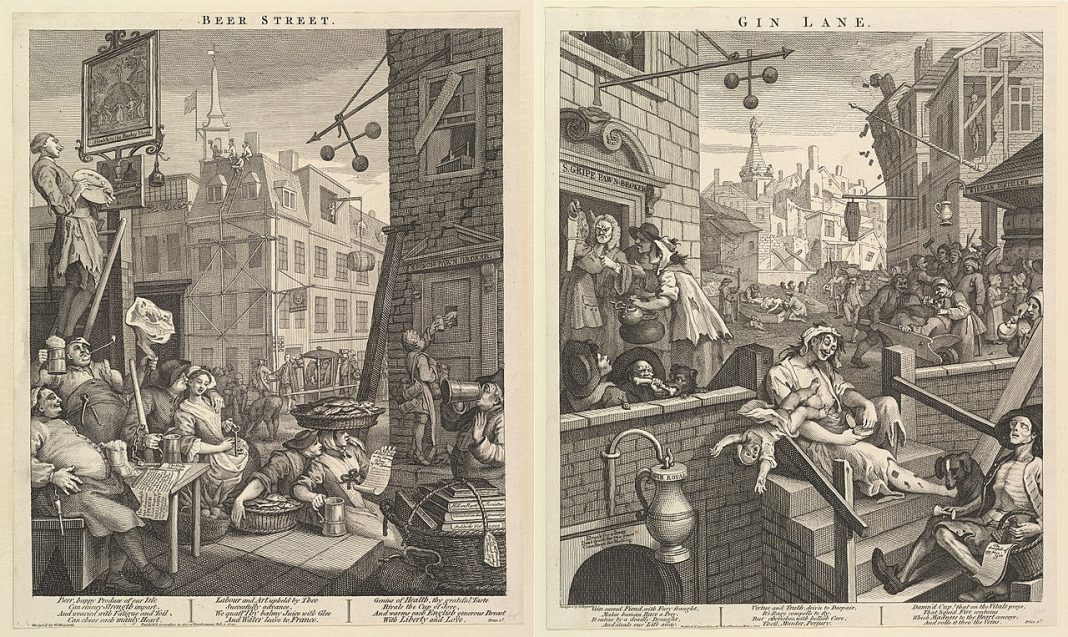A teensy weensy confessional never hurt a soul.
At one point during the full flowering of my partying life during the early 1980s (as synonymous with my early twenties), I was banned from two New Albany bars for rowdy behavior — and it might have been three if not for a case of mistaken identity that worked in my favor.
That other guy never forgave me.
Loud, profane, obnoxious? Guilty. Vandalizing the salt shaker? Well, that was a bum rap, but when your reputation precedes you (shrug). The central point is that I was a bad boy, and my pleas generally came flavored nolo contendere, although eventually we all kissed and made up.
More importantly, I grew up.
Decades later, as my dotage approaches with a speed commonly attributed to Japanese bullet trains, those halcyon days of peak youthful exuberance now are as obsolete as rotary dial phones, which might be why last week’s news that two Louisville bars intend to establish “30 and over” age restrictions did not produce even a sliver of righteous indignation, as it might have in 1985 (when I was 25).
I merely nodded in agreement, and the outline of a rueful smile appeared. Having recently experienced an instance of ageism in employment, it seems to me ironically fitting that for a change, the young pups might periodically feel the sting of this most unpleasant of lashes.
After all, surely this proposed barrier of 30-years will help to make them better people, more responsible citizens, and perhaps more likely not to vomit in the urinal.
—
As an extension and an aside, the next phase of my career in beer is taking shape.
It involves borrowing the founding concept of the AARP, or maybe Elder Hostel, and applying it to the world of better beer: 50 and over only.
My rationale is that while a youthful clientele ultimately is necessary to replenish an establishment’s stock of regulars, it is the older customers who are more loyal to situations, concepts and the bar stools they prefer. They’re less noisy and usually unwilling (or unable) to break things or start fights.
Best of all, they have disposable income and can be persuaded to part with it if the milieu being offered is comfortable — and open in the afternoon, because we like day drinking very much.
Specifically, I propose a quiet day or night, at least one per week at good beer establishments. This means no live or canned music is performed or played, and no televisions permitted to blare over the sound system, which invariably interferes with conversation, anyway.
A sporting event? Maybe, but mute it. Instead, just allow those older, loyal, freer-spending patrons to come in, sit down, sip a Chimay or Guinness 0.0 NA and talk to each other.
What a concept, silence! And yet of all my ideas past and present, this is the one surest to be rejected with an unseemly haste, and in fact, I endeavored in vain to elucidate this theory during the course of my more recent employment.
Meeting after meeting was devoted to brainstorming gimmicks to desperately try holding on to the truncated attention spans of ephemeral youth. It seemed to me that we’d tried every other glitzy, balls-in-the-air trick, so how could it hurt to be truly revolutionary by targeting a stolid, dependable and fiscally responsible audience, and try catering to them?
Granted, my “failure” at persuasion probably was the result of faulty analytical interpretation on the part of ownership, and unfortunately, too many managers mistake their own ageist prejudices for standard industry practice, regarding my “quiet time” idea as if it were an aerosol can of plague microbes.
The managers start sweating. How could we even tolerate all the Karens and Kens without music? Staff will mutiny. Those old farts are so demanding. And so on. Nonsense, but it’s disturbingly prevalent.
Yes, I realize that what I’m addressing here isn’t entirely the same issue as those considerations prompting the “not ’til you’re 30” crusade at a pair of local bars. But it’s not completely different, either. My fellow oldsters possess wisdom and experience. Give ’em a nice beer and some nibbles, and create an atmosphere in which they can hear what they’re saying. It’s never too late to learn something, and while in the end, youth will be served, fiddling with the calendar pages at the starting gate isn’t necessarily a bad idea.
Or, conversely, 21 years of age can remain the standard, and the atmosphere merely manipulated to make acts of mayhem less likely, whatever one’s age. If so, it’ll have to be more than just about the money … wait, you don’t think …
2 local bars set age restrictions. Is that legal?, by Piper Hansen, Louisville Business First
To cater to existing patronage, two Louisville bars have set age restrictions at their establishments, they said. The Palm Room and The Gruv Sports Bar & Lounge announced in weekend social media posts customers must be 30 or older to enter.
Sean Vandevander, of the Louisville Hospitality Association, told LBF there are likely other bars across the city that have similar rules, they’re just not new or widely publicized.
Vandevander went on to say, “the association’s priority is safety first and if bars think this [rule] will make their patrons safer, then all power to them.”
Meanwhile, silence is golden, although for the purposes of my 50+ beer bar, maybe we can allow some classical music on occasion. Some of my finest conversation has come to the dulcet tones of Schubert’s Trout Quintet.
—
“Edibles & Potables” is Food & Dining Magazine’s Sunday slot for news and views that range beyond our customary metropolitan Louisville coverage area, as intended to be food (and drink) for thought.
Previously …
Edibles & Potables: Listening to goat cheese, hot peppers, pizza, donuts and craft beer























